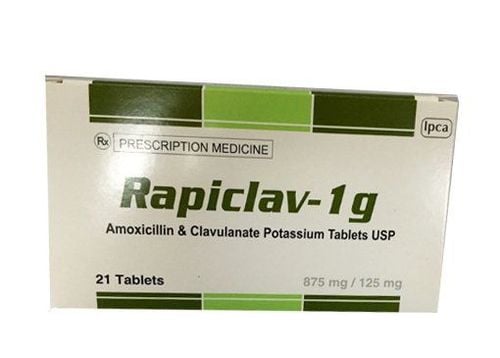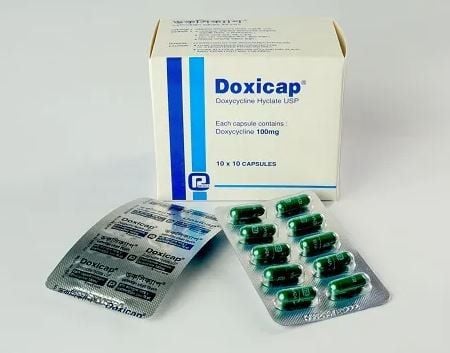This article was professionally consulted by MSc, MD. Trần Mai Phương, a Pediatrician and Neonatologist at the Department of Pediatrics and Neonatology at Vinmec Central Park International General Hospital.
Vomiting in young children can arise from various causes, not only intestinal diseases but also other organs. Parents often feel confused and uncertain about what to do when their child is frequently vomiting without fever.
1. What Causes Vomiting in Children?
Vomiting occurs when something stimulates the vomiting center in the brain. Factors include food poisoning, infections, medications, or motion sickness. In many cases, vomiting can be beneficial, as it helps the body expel harmful substances.
Trắc nghiệm: các chỉ số cần chú ý về sự phát triển thể chất của trẻ
Chiều cao, cân nặng của bé ở từng giai đoạn nên là bao nhiêu là bình thường, bao nhiêu là bất thường? Cùng ThS.BS Ma Văn Thấm điểm lại xem bạn đã nắm được các chỉ số phát triển thể chất của bé chưa nhé!The following content is prepared under supervision of Thạc sĩ, Bác sĩ y khoa, Ma Văn Thấm , Nhi , Phòng khám Đa khoa Vinmec Dương Đông(Phú Quốc)
2. Identifying Possible Conditions Causing Vomiting in Children
Several conditions can result in frequent vomiting without fever or diarrhea, including:
2.1 Gastroenteritis and Food Poisoning
Distinguishing between viral or bacterial gastroenteritis and food poisoning can be challenging, as both typically present similar symptoms, such as: children can vomit massively, and vomit continuously for 5 - 30 minutes/time in the first 1 - 12 hours. However, there are also some distinguishing signs:
Viral infections: Sudden onset of vomiting, usually accompanied by a high fever and abdominal pain. Vomiting may last from 12 to 72 hours, and diarrhea often appears within the first two days of infection.
Food poisoning: Symptoms usually manifest 2 to 12 hours after consuming contaminated food. Children with food poisoning often do not have a fever. Vomiting symptoms usually appear a few hours after eating at a restaurant or when going on a picnic and typically last no longer than 12 hours, often without fever or diarrhea. If there is a high fever or ongoing vomiting beyond 12 hours, food poisoning is less likely.
2.2 Urinary Tract Infection
Suppose the child has a persistent high fever, experiences occasional vomiting or painful urination, and has an unpleasant urine odor. In that case, parents should consider a urinary tract infection as a possible cause.
2.3 Intestinal Obstruction
This condition occurs when the child's intestines are blocked. Although rare, intestinal obstruction is a dangerous condition that requires emergency treatment. The key symptom is severe abdominal pain. If the child only has moderate or no abdominal pain, do not think much about the cause of intestinal obstruction.
Symptoms of intestinal obstruction include: severe abdominal pain (which may be sudden, continuous, or intermittent), vomiting green or yellow bile (often projectile), inability to pass stool, pale skin and excessive sweating, the condition is getting worse.
2.4 Intussusception
In children under 4 years old, sudden vomiting without fever, alongside abdominal pain and reluctance to drink, may indicate intussusception, which requires urgent medical intervention. Symptoms may include pulling legs towards the abdomen, pale skin, potential blood in the stool, and loose stools.
2.5 Pyloric Stenosis
If an infant aged 3 to 5 weeks begins vomiting violently and repeatedly, pyloric stenosis (a condition affecting the opening from the stomach to the duodenum) should be suspected. Affected infants may exhibit a pattern of sucking, vomiting, and apparent hunger without fever.
2.6 Gastroesophageal Reflux
Breastfed infants often show signs of vomiting or the urge to vomit due to gastroesophageal reflux. In some instances, the vomiting may be significant.

3. What to Do If Your Child Vomits Many Times a Day
3.1 Monitor for Signs of Dehydration
Dehydration can result from frequent vomiting. Early signs of mild dehydration include dry lips and increased thirst. Babies with mild dehydration do not require immediate medical attention but should be monitored closely for more severe signs, which can include: dry lips, crying without tears, not urinating within 6 hours, and sunken eyes. If these symptoms arise, seek medical attention immediately.
3.2 Dietary Considerations
Continue feeding your child easily digestible foods and maintain breastfeeding if applicable. Offer smaller, more frequent meals, and allow your child to eat and drink according to their needs—do not force them to eat more than they desire. Light activity following meals is advisable, and avoid excessive crying or laughter, as these can lead to more vomiting.
3.3 Rehydration
Administer an oral rehydration solution (ORS) mixed according to package instructions. ORS can help alleviate vomiting and prevent dehydration. If the child refuses to drink or vomits immediately after drinking ORS, parents need to closely monitor symptoms of more severe dehydration and give the child another dose after 10 minutes.
3.4 Elevated Head Position
Keeping your baby’s head elevated can help reduce reflux. It's important to avoid factors that increase abdominal pressure, such as tight clothing.
3.5 Preventing Spread of Infection
If your baby vomits due to a virus or bacteria that can easily spread, you need to be particularly cautious while caring for them. To prevent transmission to yourself, other family members, and friends, wash your hands frequently and keep your child at home until they have not vomited for 24 hours.
4. When to See a Doctor
Consult a doctor immediately if your child exhibits any of the following signs:
- Vomiting bile (green) or blood (red or brown)
- Vomiting in an infant
- Vomiting for more than 24 hours
- Inability to eat or drink for several hours
- Signs of dehydration, such as dry lips, crying without tears, or not urinating for 6 hours
- Severe abdominal pain
- A fever higher than 38.4°C for more than 3 days, or a fever above 39°C at any time
- Lethargy or excessive sleepiness
If your child is vomiting but still playing and eating normally, you can monitor them at home while providing fluids and electrolytes. However, if they show other concerning symptoms like abdominal pain, loss of appetite, or lethargy, seek medical attention immediately.
For children to be healthy and develop properly, they need a well-balanced nutritional regimen. An inadequate intake of essential nutrients can lead to deficiencies or excesses, negatively affecting their overall development, including physical, mental, and motor skills.
Children who do not eat properly risk suffering from micronutrient deficiencies, which can cause issues such as poor appetite, slow growth, and inadequate nutrient absorption. If you notice these signs, consider supplementing their diet with products containing lysine, essential micronutrients, and vitamins like zinc, chromium, selenium, and B vitamins. These nutrients can help meet your child’s nutritional needs, support digestion, enhance nutrient absorption, and improve appetite.
To stay informed, parents can learn more about topics such as:
- Signs of zinc deficiency in children
- Micronutrient deficiency and weight gain issues in children
For useful information on caring for your baby and family, regularly visit the Vinmec.com website.
Please dial HOTLINE for more information or register for an appointment HERE. Download MyVinmec app to make appointments faster and to manage your bookings easily.















